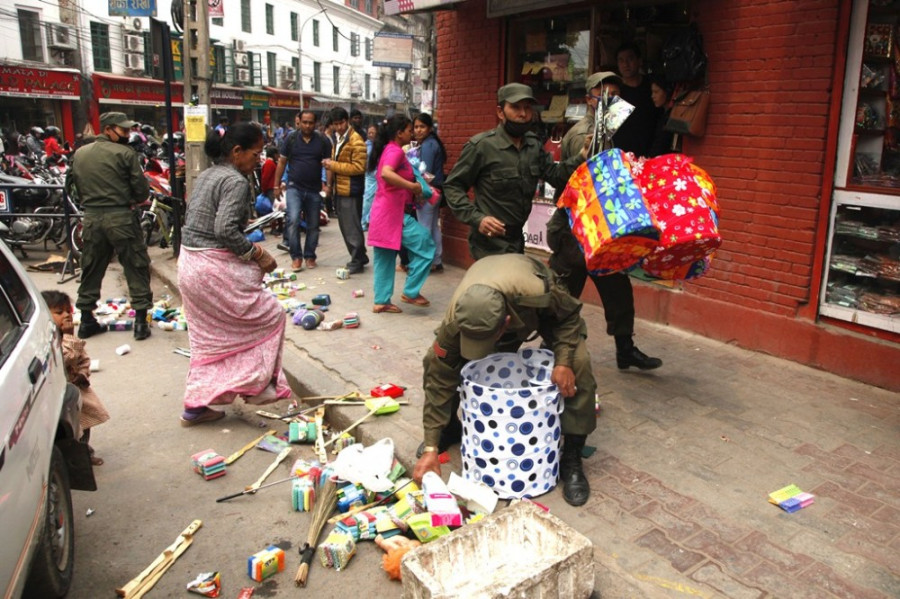Editorial
It’s time the government legalises street vendors
Government must adopt clear rules for responsible vending while actively enforcing against bad operators.
Street trade is an important source of income and employment. Almost a decade ago, Kathmandu’s former Mayor Keshav Sthapit had recommended allocating separate spaces for street vendors, who create problems for pedestrians and vehicles by encroaching upon footpaths and roads but nothing has come out of it yet. The government has paid no attention towards implementing the report, instead, it sporadically launches a crackdown on footpath businesses, confiscating their wares and charging them a fine. Realising this has not deterred the vendors from taking to the street to earn a living, the Kathmandu Metropolitan City is now planning to auction off the goods seized from them.
Street vendors or ‘hawkers’ are a ubiquitous sight in busy city spaces globally. They are so common that it has now become a character of the streets which many of us are familiar with. Imagine Baneshwor without its long line of vegetable sellers or Ratnapark without a stream of people selling clothing, sunglasses, and mobile cases. But for a long time now, the government and the owners of these sidewalk stalls have been on a collision course with each other—with the former trying to evict the latter in the name of encroachment and the vendors demanding the government find a better alternative for them if they are to be removed from the streets. The underprivileged in the Valley and outside need a comprehensive plan so that they can have a legal right to exist and operate, with the city benefiting from their services.
In other parts of the world, the government deals with them through means of legislation. For example, Los Angeles has legalised street vending, and India’s Street Vendors Act 2014 seeks to reduce the harassment that street vendors face from the police and other local authorities. The Act requires town and zonal vending committees to be formed in every city that will include vendors, administrators, NGOs, police, town planners and elected people’s representatives who will identify spaces that can be used by street vendors, and register and issue licences.
In Los Angeles, as per the law, vendors will be required to obtain business licenses and health food permits. It mandates the merchants to not ‘impede with the flow of pedestrian activity’ and ‘clean areas around their carts’. A similar measure can be adopted here, too, instead of uprooting hawkers without finding a better alternative for them. Therefore the key is to adopt clear rules for responsible street vending while actively enforcing against bad operators. One way of doing this is Kathmandu Metropolitan can designate areas where these shops can be placed and simultaneously establish a hotline or a clear system for business owners to report scofflaw vendors.
The complexity of dealing with street vending is in managing the interests of both the business owners and pedestrians. The activities of the street vendors could work to the benefit of the general public, but they also are inconvenienced by them. The widespread, uncontrolled industry of sidewalk selling needs to be regulated so that everyone benefits.




 20.12°C Kathmandu
20.12°C Kathmandu













